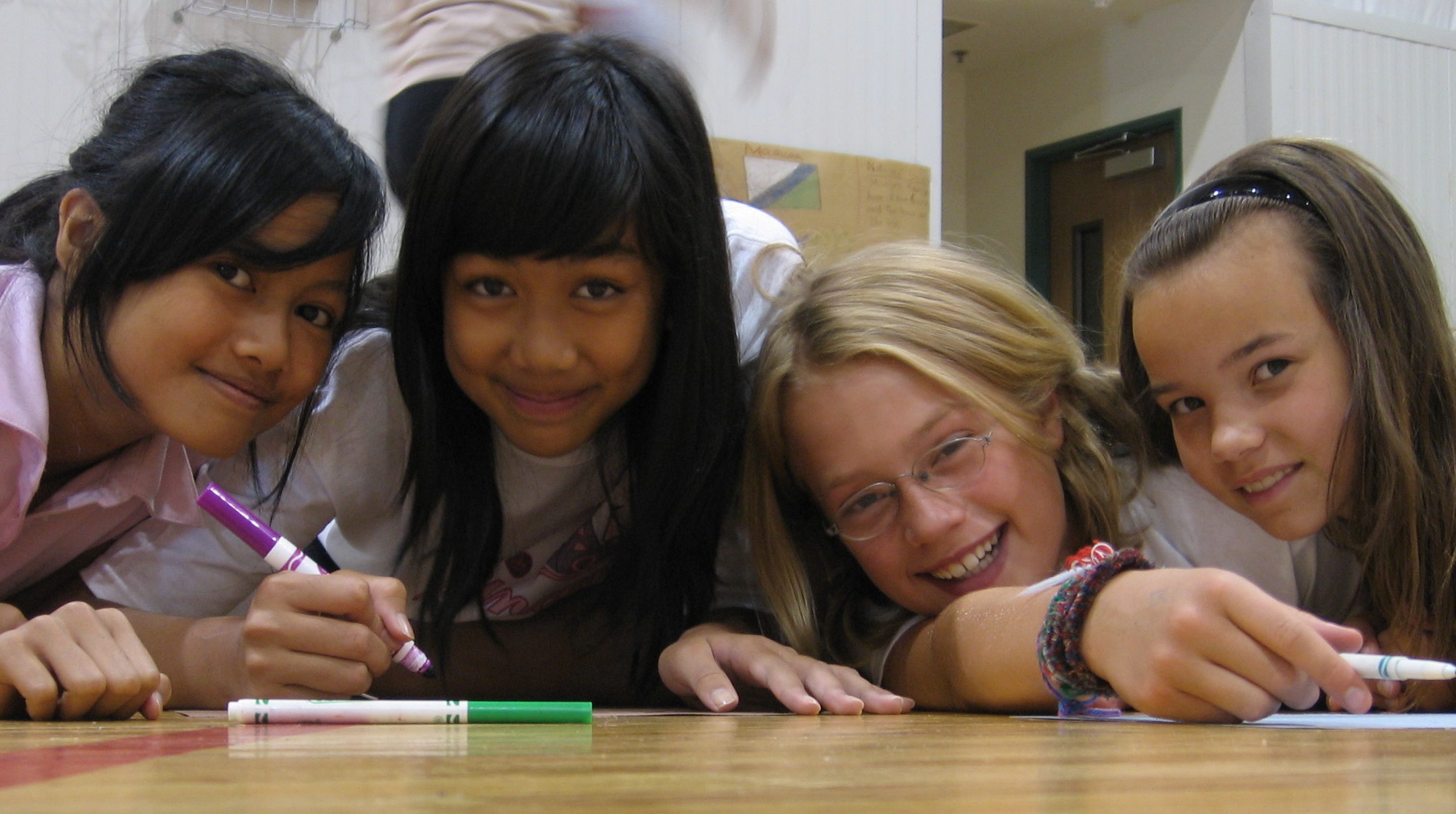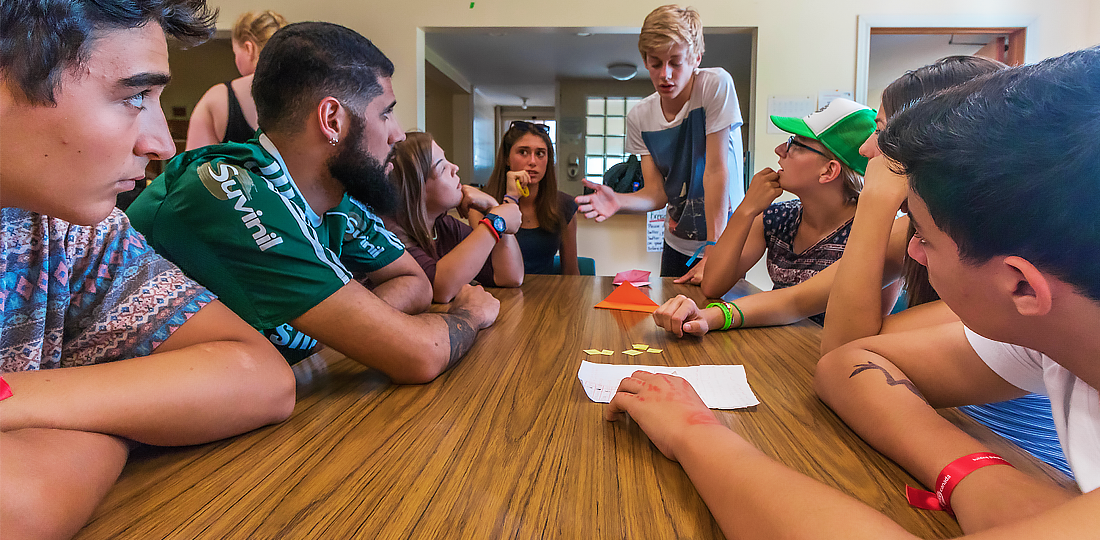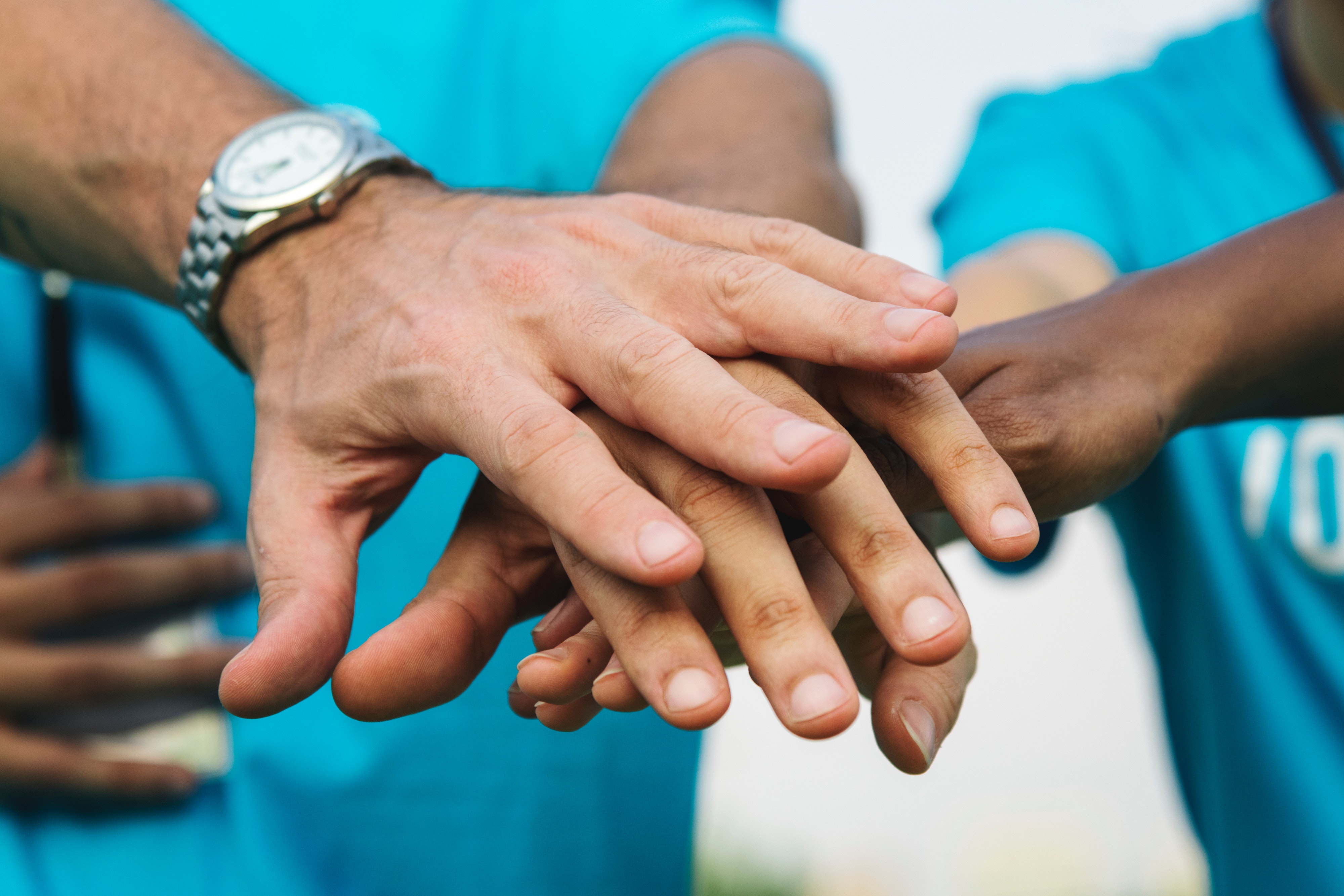Introducing the Jirafas Team 2015 – The year to start being more Giraffe!
6 steps: What We’ll Do Throughout the Year
January 25, 2019Introducing Stand Up
January 25, 20192015 – The year to start being more Giraffe!
by David Gomez, Sigrid Elena Hauge, May Linn Orkelbog, and Juanda Valencia
Happy New Year from the Jirafa Project. We are one of the groups that will throughout this year prepare your food for thought, and together we will embark on a journey to learn more about the topic of Conflict and Resolution. What are the knowledge, skills and attitudes needed to handle conflicts in a constructive way? Recent events prove that this is a highly relevant question. 2014 saw a peak in the number of wars, and several existing armed conflicts escalated*. However, we should not feel discouraged with gloomy statistics because everyday people are fighting peacefully for a better and more equal world.
For those of you who have not heard about the Jirafa Project, we are an exchange project between CISV Norway and CISV Colombia. This year is the fourth year this project has existed and we will create a book that will be the fourth in line of a series created by this exchange project. Maybe you have heard of the Lunch-Box or last year’s book, the Kaleidoscope? Each project is part of this long-term cooperation between CISV Colombia and CISV Norway in an effort to strengthen both organizations through an exchange of knowledge and best practices. The projects’ goal is to contribute to local and international activities, workshops and seminars, and to produce educational tools around CISV’s yearly theme.
The Jirafa Project is managed by David Gomez and Juanda Valencia from CISV Colombia and Sigrid Elena Hauge and May Linn Orkelbog from CISV Norway. The reason why we chose to call ourselves The Jirafa Project (jirafa means giraffe in Spanish) is because the giraffe is a well-known animal within the conflict and conflict resolution world. That is thanks to Dr. Marshall B. Rosenberg who created the Giraffe vs. Jackal language. The giraffe represents compassionate communication. With its long neck it can get a clear overview of a situation, its sharp hearing makes it a good listener and its big heart represents empathy. Did you know that the giraffe has the biggest heart amongst the animals that live on land? We think everyone should adapt all those characteristics in our everyday life, we all should try to be more giraffe!
So far we have posted several blog posts about conflict and resolution, and we have created a toolbox with 11 activities that we will share with you throughout the next months. These activities focus on how we personally can manage everyday life conflicts in a constructive way, but also about how we can understand armed conflicts and wars in today’s world.
If you have not done so already, you should like us on Facebook for weekly blogposts and updates (facebook.com/jirafaproject). Do you have any ideas for an activity you want us to develop further or you want to be a guest writer for our blog? Please don’t hesitate to contact us.
Be more giraffe!
//Hugs
Sigrid, Juanda, David and May Linn.



